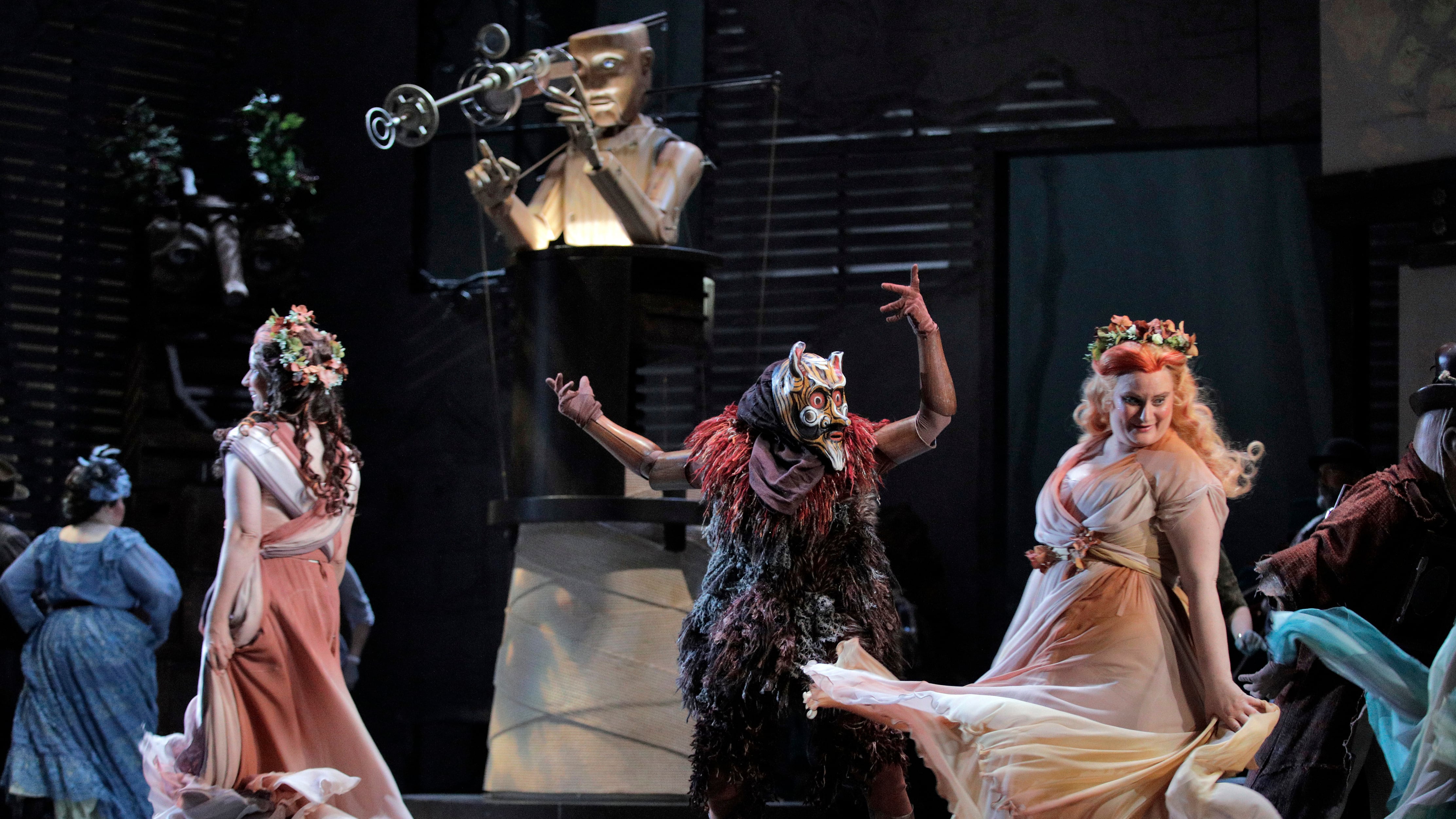Faust opens in the laboratory of a wizened alchemist. "Rien!" Faust yells at the opera's start ("it's useless!"). The laboratory is dark and full of angles, curves and corners. Attempts to find solace in straight, continuous lines are fruitless. "When will death free me from this burden?" Faust (Jonathan Boyd) cries out in his rolling tenor, bewailing the pointlessness of his life's work and lost time. "I curse happiness and knowledge, prayer and faith," he laments, soon before Méphistophélès (Alfred Walker) appears. Méphistophélès is charismatic, with a feather in his cap and a sword by his side. He is the devil, and he persuades Faust to trade his soul in exchange for a chance at a second youth and the prospect of seducing the beautiful young Marguerite (Angel Blue).

The opera is one of the most-performed of all time. Portland Opera first performed the production in 1966, and has performed it almost once every decade since. Now, 12 years after its last Portland showing, Faust is back onstage. And this terrifically entertaining version of Gounod's 1859 French classic—with stellar performances by leads Boyd, Walker and Blue, and groundbreaking visual design by artist John Frame—is much more than a once-per-decade exercise.
The classic opera is three-and-a-half hours long with two intermissions—and well worth the time investment. The gripping performance chops by quickly, even if you're not an opera fan.
Faust succeeds in highlighting the worst inclinations of humanity. Themes are made visceral with Frame's set design, which manages to externalize Faust's internal turmoil. The stage is filled with surfaces and screens where creeping, crawling, shadowy, skeletal figures are projected. While Faust considers manipulating and draining the life and youth out of fair Marguerite, there are demonic figures dancing all around him. At a given time, as the audience focuses on a performer, we may also catch a peripheral glimpse of activity—a marching line of skeletons, for example, giving the eerie, closing-in feeling of doom.

The projections are a bit like the camera in the filmmaking process. They can be instantly moved, changed, increased or decreased in size. They relocate us to a different place in the middle of a scene, without replacing the scenery. In Act 3, an emotional portion of the opera in which we first see Marguerite alone in her garden outside her forest cottage, colorful projections of tall blooming flowers fill the stage. The imagery implies that to Faust, Marguerite is a flower— something pretty to be plucked and admired until she decays. When the projection shifts from the flowers to ominous demons, serpents and winged monsters, we know we have temporarily left the garden and entered the underworld. And when the projection turns to rising flames, we know that Faust has succeeded in consummating his dishonorable mission.
SEE IT: Faust is at the Keller Auditorium, 222 SW Clay St., portlandopera.org. 7:30 pm Thursday and Saturday, June 14 and 16. $35-$135.

